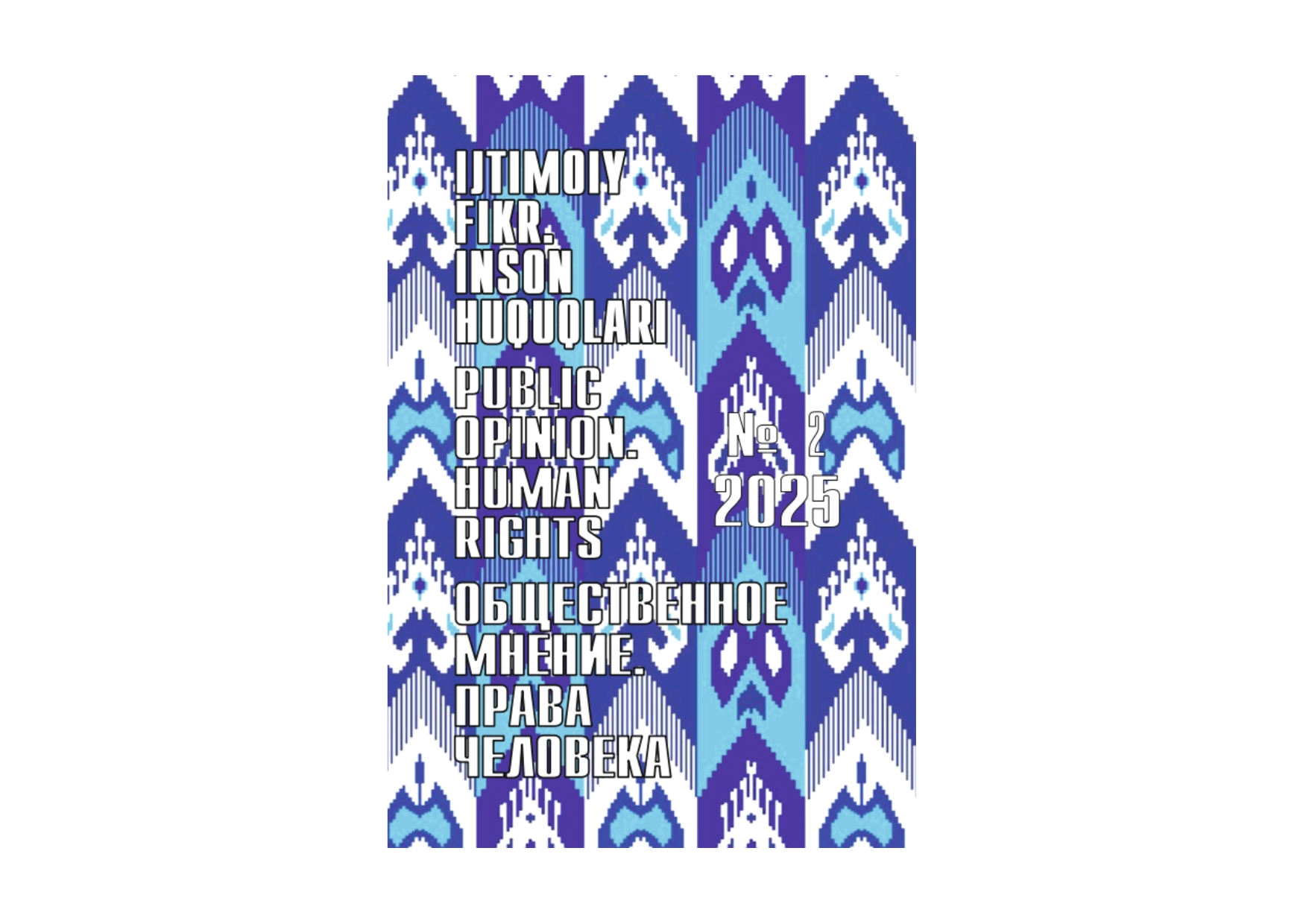04.08.2025
133
The second issue of the scientific journal "Ijtimoiy Fikr. Inson Huquqlari" for 2025 has been published
Uzbekistan’s leading scientific and informational publication "Ijtimoiy Fikr. Inson Huquqlari", which serves the scientific and practical analysis of public opinion, supports the development of civil society, and promotes human rights, has released its second issue for 2025.
This issue covers a wide range of topics — social processes in the country, civic engagement, political modernization, spiritual thinking, gender equality, migration, information security, and other important issues — aiming to provide a scientific analysis of various aspects of modern Uzbekistan.
The pages of the journal, from the perspective of public opinion, highlight issues such as the strategic priorities of foreign policy, the stable social position of the middle class in society, a socio-psychological analysis of interpersonal relationships in large families, and the influence of social networks on young people’s family relationships.
In addition, the journal features articles dedicated to gender equality and legal reforms, the legal protection of women with disabilities, interaction between state and civil society institutions, and the legal foundations of information and digital security. These materials present a sociological and legal picture of the country’s ongoing transformation processes.
This issue also includes an analytical piece based on the results of a survey conducted by the Republican Center for the Study of Public Opinion Ijtimoiy Fikr. It provides a detailed look at the culture of reading among the population, as well as interests and preferences in this area. The results of this survey serve as an important source for understanding the role of public opinion in strengthening spiritual values, striving for knowledge, and stabilizing the country’s intellectual environment.
Each article in this issue is authored by leading sociologists, lawyers, political scientists, historians, and philosophers working in various scientific institutions across the country. Their high level of expertise, sectoral experience, and analytical skills have defined the overall intellectual potential of the journal.
The journal is primarily intended for researchers in the field of social and humanitarian sciences, representatives of political and civil institutions, analysts, media professionals, and a broad audience interested in gaining a deeper understanding of the essence of social changes taking place in the country.


